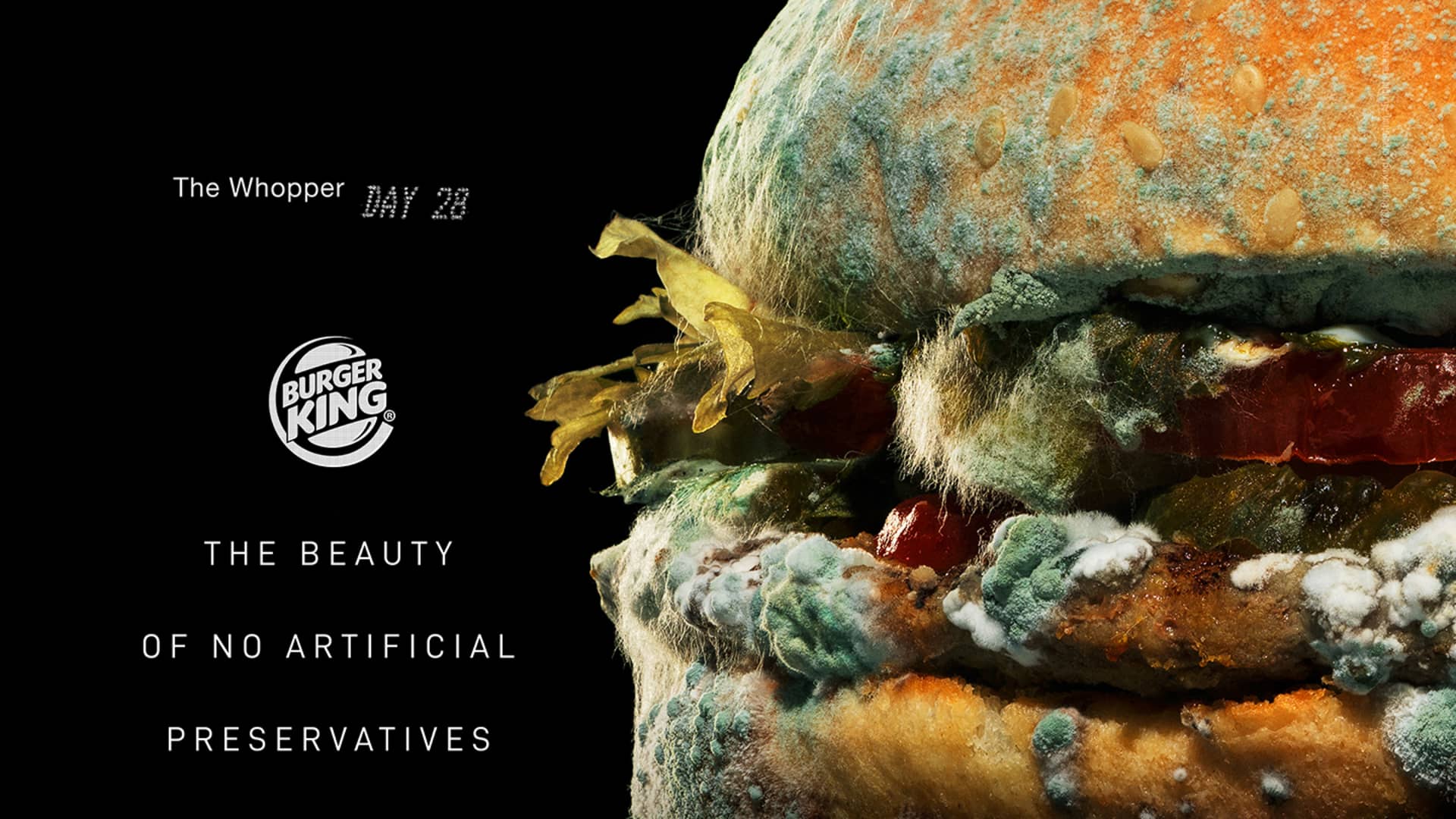TIL that in 2020, Burger King ran an advertising campaign featuring a picture of a moldy Whopper, to prove that their burgers are made without preservatives. This unconventional advertising method worked, increasing sales by 14% (according to multiple sources.)



Trans fats aren’t preservatives are they? I thought they were for texture / taste.
Fat itself is a preservative, regardless of being saturated, cis or trans, since it helps to isolate food from humidity and air. That’s how comfit works, for example.
Yes, but it’s a bit more complicated than that.
Trans fats are mostly the result of partial hydrogenation of unsaturated acids; basically you pump some hydrogen into fat, in the presence of catalysts, and it’ll convert some triple bonds into double and some double bonds into single. That makes the fat firmer, because it increases its melting point, so yes, it changes the texture.
However, if the result is a double bond, you can generate two types of molecules, “cis” or “trans”, depending on the positions of the carbons around the double bond. Like this (check the last two molecules):
Most natural processes generate cis fatty acids. Hydrogenation generates trans fatty acids.
This wouldn’t be a problem if the fat was hydrogenated all the way, because then the double bond gets replaced with a single bond (where this issue doesn’t pop up - see the first molecule). However that is more expensive than simply doing it halfway, and generating all those trans acids.
^Best answer. I majored very well in chemistry, a tiny bit less well in career, but this is the “cis” vs. “trans” explanation I was hoping to see.
deleted by creator
They technically have preservative properties because of the hydrogenation, but they really aren’t used for that purpose. You don’t fry things to necessarily preserve them better. It’s for taste/texture, like you said.